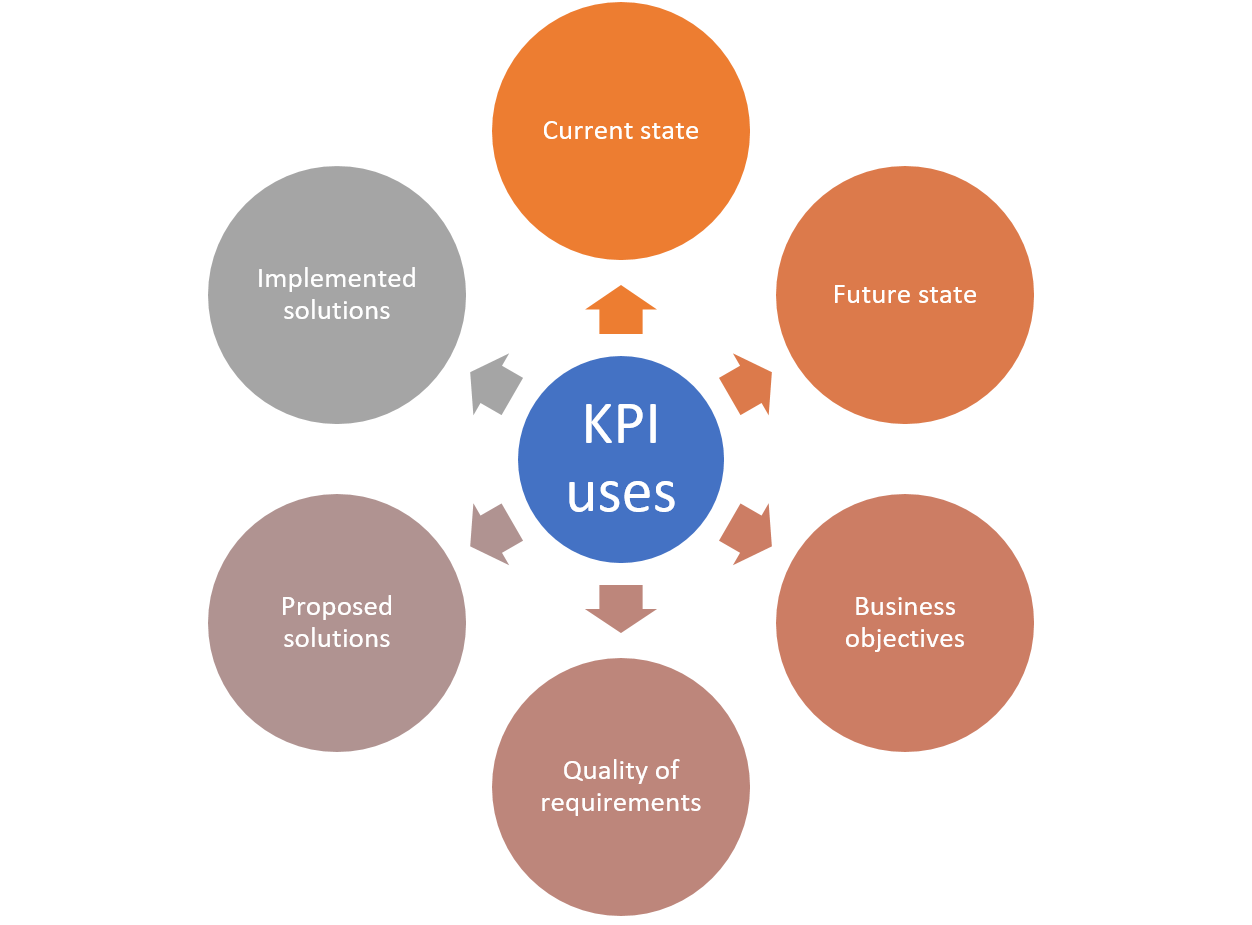
Key performance indicators are a method for setting out criteria for measuring performance and understanding success.  When is the technique applicable They can be defined for a number of reasons:
When is the technique applicable They can be defined for a number of reasons:
- To assess performance of current state
- To determine whether future state has been achieved or whether further action required
- To identify whether business objectives have been achieved
- To judge the quality of the requirements gathered
- To measure the quality of each of the solutions being considered when evaluating options
- To enable the solution being deployed to be monitored
How to use/apply it To apply this technique the key performance indicators:
- Need to be agreed based on what concerns / objectives need to be addressed
- Have characteristics that are unambiguous, relevant, not expensive to collate, quantifiable and credible.
- The method of collection and frequency must be feasible
Worked example The example provided is to identify what measures an existing website could have to be successful. Identifying the key performance indicators in this example will establish:
- Whether the current performance state of the website is performing adequately.
- What measures needs to be monitored to ensure it either continues to do so or is improved.
- Can be included to improve the quality of the requirements.
Concerns:
- Popularity – to be able to identify future increases in growth to ensure customer service and accessibility are not impacted as a result
- Accessibility – to identify who uses it and to ensure is available when required
- Customer service – to understand the response times in providing this service
Measures and actions Website statistics can be used to obtain the following that relate to the concerns identified above to understand the existing state:
- Trend analysis of hits to website and how changed over time to predict future growth.
- Comparison with original non-functional requirements and what capacity was originally planned.
- Location of users and access times to understand the times of when needs to be accessible
- Entrance page to understand what route is the most popular
- Response times
- Frequency of busy page
- Most visited pages and percentage
Key performance indicators The following key performance indicators and requirements may then be identified for monitoring or to address new requirements if changes have been identified as a result of the existing state analysis.
| Objective | Measure | KPI Target | Requirement |
| Capacity | Hits for future performance | Estimate of hits for beginning of: 2017 – 20 000 000 2018 – 29 000 000 2019 – 36 000 000 | To have the system capacity to handle volumes of hits whilst meeting the other KPI’s. |
| Accessibility | Availability | 24 x 7 | Normal hours for availability are required to be 24 hours 7 days a week. |
| Customer service | Response times | <=5 seconds static page <=12 seconds dynamic page | The maximum response time will be a maximum of 5 seconds for a static page and a maximum of 12 seconds for fetching a data from a database for broadband access. |
| Successful hits | >98.34% | To exceed the Gomez’s banking GPI benchmark for successful hits. | |
| Busy views | 0% | The throttle should be 40 concurrent users per server and database connections and no busy views. |
Thoughts? Questions? Please share in the comments.
If you have found this article useful then you might like my book – The Business Analysis Handbook – Techniques and Questions for better Business Outcomes. The book is available from www.koganpage.com and all major print and e-book retailers.


Tnx Mrs. Winter. It was useful
Thanks, glad you found it useful
Regards, Helen